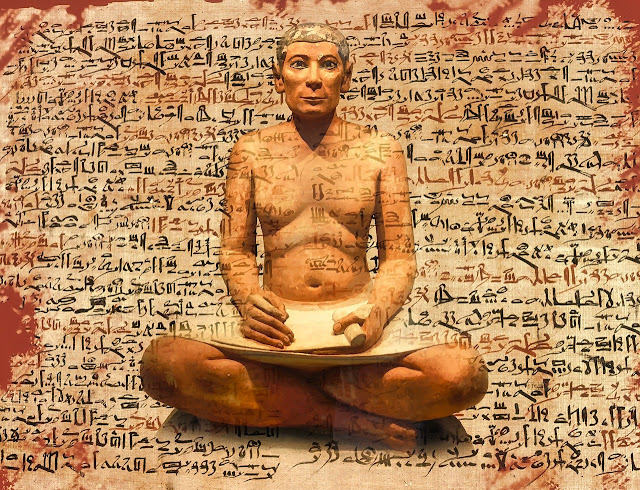The Ancient Origins of To-Do Lists - A Journey Through Time
Deeply Rooted in Ancient Civilizations
In our modern world, to-do lists are ubiquitous tools for productivity, helping individuals manage tasks ranging from mundane errands to significant life goals. But have you ever wondered where this practice originated? Surprisingly, the concept of organizing tasks into lists is not a modern invention but stretches back thousands of years, deeply rooted in ancient civilizations. This article explores the ancient origins of to-do lists, highlighting how our ancestors utilized these organizational tools, and drawing connections to our current practices.
The Cradle of Civilization: Mesopotamia
Our journey begins in ancient Mesopotamia, around 3200 BCE, where the earliest known examples of writing include not just language and literature but also lists. These early lists, inscribed on clay tablets using cuneiform script, were primarily for accounting, inventory, and recording transactions. However, among these practical inscriptions, we find the precursors to modern to-do lists—plans and tasks laid out to manage the agricultural, trading, and administrative duties that were the backbone of Mesopotamian society.
The Papyrus Scrolls of Ancient Egypt
Moving to the banks of the Nile, ancient Egyptians mastered the art of list-making using papyrus scrolls. These lists ranged from administrative tasks and goods inventories to religious and funerary preparations. The "Book of the Dead," a famous collection of spells and instructions for the afterlife, serves as a testament to the Egyptian inclination toward comprehensive list-making, illustrating their belief in the power of organized knowledge and action, even in the afterlife.
The Organized Minds of Greece and Rome
In the classical world of Greece and Rome, lists played a crucial role in both personal and public life. Philosophers, statesmen, and generals alike used lists for various purposes, from managing day-to-day tasks to strategic military planning. The Romans, known for their engineering and administrative prowess, left behind evidence of meticulous record-keeping and planning, including tablets that list military preparations, political agendas, and administrative duties. These artifacts reveal a sophisticated understanding of organization and efficiency.
The Bamboo Slips of Ancient China
In ancient China, the use of bamboo slips and later paper for record-keeping and administrative purposes included the creation of lists for managing state affairs, agriculture, and military conscription. The Chinese emphasis on bureaucracy and state control necessitated detailed organizational practices, of which list-making was a fundamental component. Philosophical texts from this era also highlight the importance of order and planning, resonating with the principles underlying modern to-do lists.
The Human Impulse to Organize
These glimpses into the past demonstrate that the impulse to organize tasks and information into lists is a universal human trait, transcending cultures and epochs. From the clay tablets of Mesopotamia to the papyrus scrolls of Egypt, and from the administrative records of Rome to the bamboo slips of China, each civilization recognized the value of lists in bringing order to the complexities of human life.
Modern Echoes of Ancient Practices
Today's to-do lists, whether scribbled on paper or organized in sophisticated digital apps, are the direct descendants of these ancient practices. The fundamental human need to organize, prioritize, and manage tasks has remained constant, even as the tools and technologies we use have evolved. Reflecting on these ancient origins enriches our understanding of the to-do list not merely as a productivity tool but as a timeless method for imposing order on chaos, bridging our daily lives with those of our ancestors.
The Ancient Tradition of Organizing and Planning
The history of to-do lists is a testament to the ingenuity and universality of human organization and planning. As we jot down our daily tasks, we participate in an ancient tradition, connecting us to the past and reminding us of the enduring human desire to make sense of our world through lists. This exploration not only offers a historical perspective but also celebrates the to-do list as a fundamental aspect of human culture, as relevant today as it was thousands of years ago.
Image: Nanne Tiggelman from Pixabay




Comments
Post a Comment